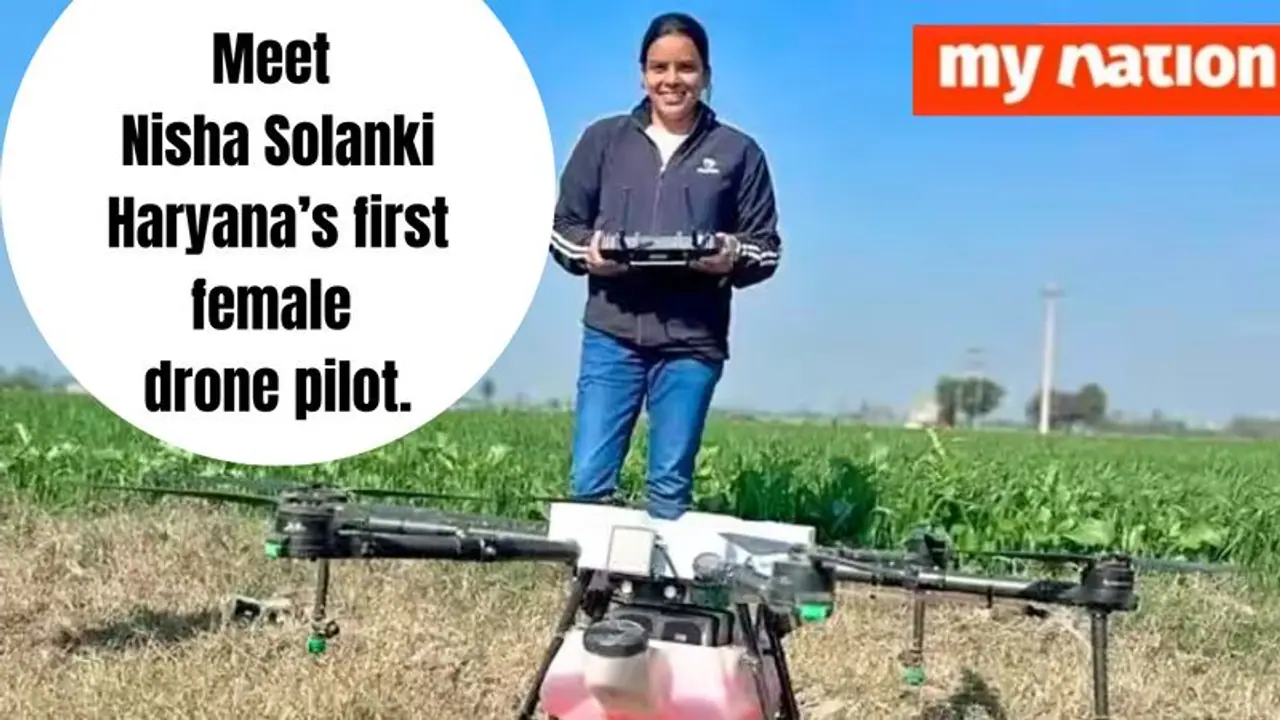Nisha Solanki is Haryana’s first female drone pilot. She teaches farmers about the benefits of using drone sprayers. Presently, Nisha is a part of the ICAR Atari Drone Project under Maharana Pratap University, Karnal. So far, she has performed 250 demos covering an area of 780 acres of farmland.
Haryana: Nisha Solanki teaches farmers about her innovative technique of spraying fertilizers, pesticides and seeds on their fields with the help of drones. Nisha is the first certified female drone pilot from Haryana.
Nisha Solanki’s background
Nisha Solanki is a resident of Karnal, Haryana. Her father, Shri Bhagwan is a retired army office. Due to the dynamic nature of her father’s work, the family relocated to different cities. Nisha and her brother attended different schools allowing them to gain varied experiences. Nisha holds a B. Tech degree in Agricultural Engineering from Haryana Agriculture University.
Incomplete dreams
After completing her schooling, Nisha wanted to pursue Aeronautics Engineering. But on her father’s insistence she went for Agricultural Engineering. After completing her graduation in the year 2014, he did a private job for five years. For one year, she was also employed at Axis Bank’s Kisan Credit Card. Later, she worked for Potato Technology Centre in Karnal.
Becoming a drone pilot
Three years into her career, Nisha considered to pursue a master’s degree. She enrolled in M. Tech at Chaudhary Charan Singh (CCS) University. During her study, she got the chance of meeting Deepak Bhardwaj, the Director of Ayotech World Aviation. Deepak guided her to accomplish her dreams by becoming a drone pilot. Nisha did a course in the same subjects, earned certification and became Haryana’s first female drone pilot.
Presently, Nisha is a part of the ICAR Atari Drone Project under Maharana Pratap University, Karnal. So far, she has performed 250 demos covering an area of 780 acres of farmland.
Meeting the Prime Minister
Nisha completed her certification course in the year 2022. After that she received an opportunity of meeting India’s Prime Minister Narendra Modi. PM Modi asked Nisha about the efficiency of using drones for spraying products on the fields. Nisha gave a prompt answer and replied saying that in traditional farming methods, almost 150-200 litres of water is used, while on the other hand, the water consumption reduces to 10 to 20 litres with the use of drones.
